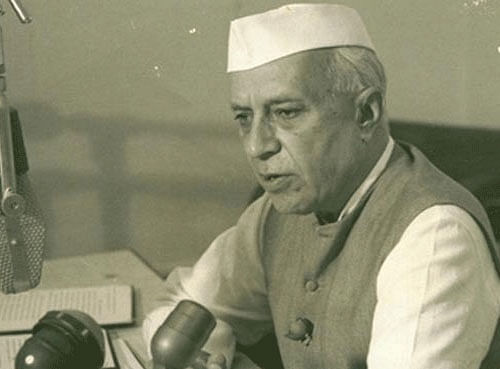
The "Forward Policy" of the government under late Prime Minister Jawaharlal Nehru and the then army leadership has been blamed for India's humiliating defeat in 1962 war against China in a top secret report accessed an Australian journalist.
The Henderson Brooks report, which still remains officially classified, has found serious faults with the "Forward Policy" and the army for carrying it out without the necessary wherewithal, according to defence journal Indian Defence Review, which has put on its website some portions of the report first released by Journalist Neville Maxwell.
Maxwell, who had reported on the war extensively, had released some contents of the Henderson Brooks report on his website. There has been no official reaction to the disclosed contents.
The Henderson report has criticised the then government, military and intelligence agencies for basing their assumptions on the belief that the Chinese would not escalate hostilities whereas militarily they should have thought "exactly opposite".
The Forward Policy, which had sought the raising of military outposts in areas claimed by Chinese and launching of aggressive patrols, increased the chances of conflict, the report has said, suggesting that India was not militarily in a position to implement this.
"This review is not concerned with the probability of conflict with or without the Forward Policy but with its introduction the chances of a conflict certainly increased. ... what is pertinent here is whether we were militarily in a position to implement this," the report said.
Referring to various high-level meetings, one of which was attended by Nehru, the report says the Army Headquarters and the then Intelligence Bureau Director were of the view that China was unlikely to use force against Indian posts even if they were in a position to do so.
The army leadership had also overruled the concerns raised by the Western Command, which said it was ill-prepared to implement the policy and we would be "defeated in detail" in case of hostilities, the report said.
The Western Command's position was realistic, it said, but Army Headquarters apparently stuck to their belief that the Chinese would not resort to any large-scale hostilities, a presumption belied by its attack as its army ran through Arunachal Pradesh and captured large parts of Ladakh.
"The General Staff Branch Army Headquarters not taking note of this warning of Western Command could only be attributed to an incorrect assessment of Chinese reactions, together with a sense of complacency that nothing would happen," it said.